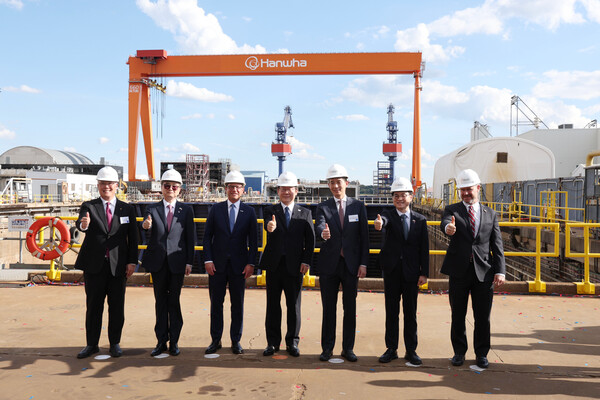Move signals implementation of ‘Busan Agreement’ as U.S.–China trade tensions enter temporary pause

China has agreed to suspend sanctions on five U.S.-based subsidiaries of South Korea’s Hanwha Ocean for one year, marking the first visible outcome of the so-called “Busan Agreement” reached between the United States and China to prevent further escalation of their trade conflict.
The Chinese Ministry of Commerce announced on the 10th that it would halt enforcement of restrictions imposed on Hanwha Ocean’s subsidiaries, following Washington’s decision to pause its Section 301 measures targeting China’s maritime, logistics, and shipbuilding industries for the same period. The suspension took effect at 12:01 a.m. Eastern Time on November 10.
The sanctions were originally introduced on October 14, when Beijing added the subsidiaries— including the Hanwha Philly Shipyard in Pennsylvania, Hanwha Shipping, Hanwha Ocean USA International, Hanwha Shipping Holdings, and HS USA Holdings — to its restricted entity list. China accused them of “supporting” the U.S. government’s Section 301 investigation and thereby “damaging China’s sovereignty, security, and development interests.”
The Hanwha Philly Shipyard, in particular, drew attention earlier this year as part of the U.S. initiative known as MASGA (“Make American Shipbuilding Great Again”), and was visited by South Korean President Lee Jae-myung in August. The sanctions had raised concerns that South Korea was being pulled directly into the U.S.–China maritime and industrial dispute.
The United States previously criticized China’s measures, calling them “economic coercion” aimed at discouraging foreign investment into the U.S. shipbuilding sector.
However, following the Busan summit between the U.S. and Chinese presidents, both sides agreed to refrain from further retaliatory actions. The U.S. pledged to temporarily suspend Section 301 restrictions on Chinese maritime and logistics companies, and China reciprocated by placing its sanctions against Hanwha Ocean’s subsidiaries on hold.
The issue was also discussed during the Korea–China summit in Gyeongju, where both sides noted the possibility of “constructive progress” depending on the broader stabilization of U.S.–China economic tensions.
In a statement released shortly after Beijing’s announcement, Hanwha Ocean welcomed the decision, expressing hope that the suspension would help strengthen cooperation and trust with its Chinese business partners.

